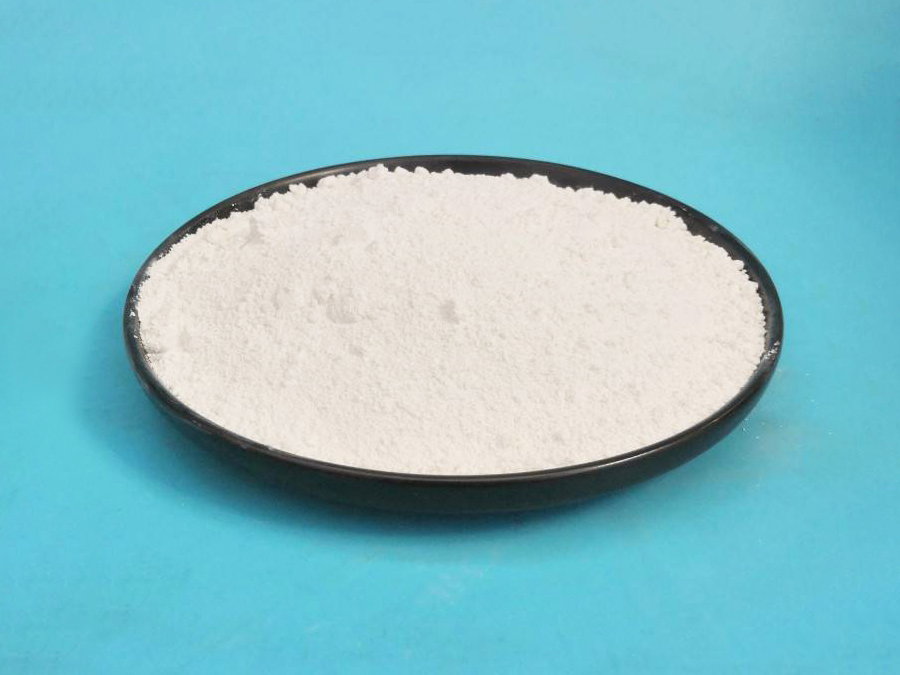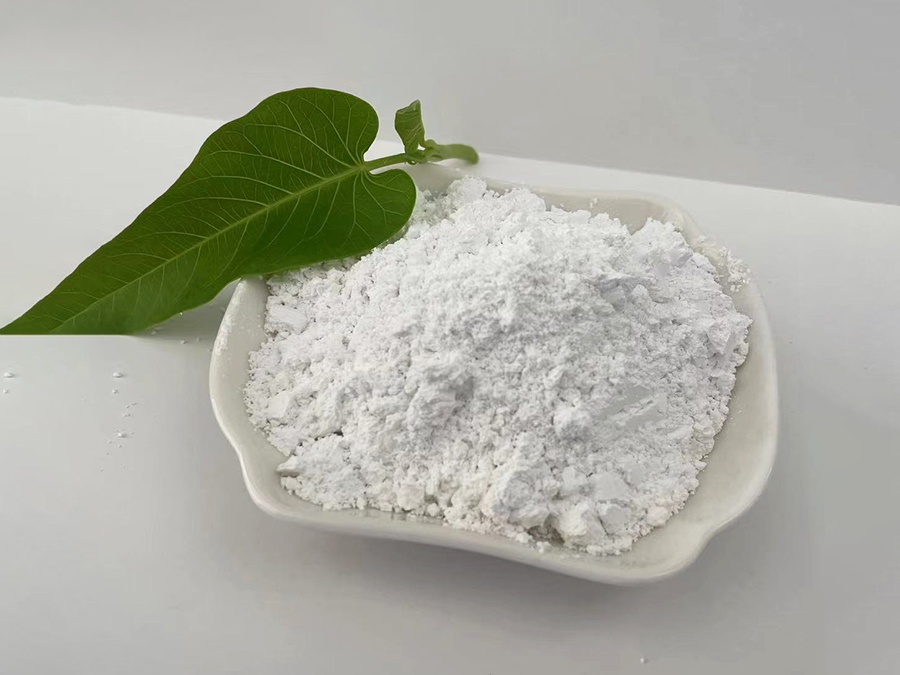
DAXUNTE
PRODUCT RANGE
 Sodium percarbonateSodium percarbonate is an inorganic compound and a strong oxidizing agent with the chemical formula 2Na2CO3 · 3H2O2. It is a white crystalline powder that can release oxygen when exposed to moisture. Sodium percarbonate is an additive compound of hydrogen peroxide and sodium carbonate, mainly used as a bleach and oxidant, as well as a detergent, cleaning agent, and bactericide in chemical, papermaking, textile, dyeing and finishing, food, pharmaceutical, and health sectors.Sodium percarbonate has efficient washing ability. The addition of sodium percarbonate as an oxygen-containing detergent can greatly increase the effective composition of the detergent, effectively removing fruit stains, wine stains, yellow stains, etc. that cannot be removed by ordinary laundry detergent.
Sodium percarbonateSodium percarbonate is an inorganic compound and a strong oxidizing agent with the chemical formula 2Na2CO3 · 3H2O2. It is a white crystalline powder that can release oxygen when exposed to moisture. Sodium percarbonate is an additive compound of hydrogen peroxide and sodium carbonate, mainly used as a bleach and oxidant, as well as a detergent, cleaning agent, and bactericide in chemical, papermaking, textile, dyeing and finishing, food, pharmaceutical, and health sectors.Sodium percarbonate has efficient washing ability. The addition of sodium percarbonate as an oxygen-containing detergent can greatly increase the effective composition of the detergent, effectively removing fruit stains, wine stains, yellow stains, etc. that cannot be removed by ordinary laundry detergent. Hafnium oxideHafnium dioxide is white or gray powder. It is insoluble in water, hydrochloric acid, nitric acid and other common inorganic acids, and slowly dissolves in hydrofluoric acid to form fluorohafnate. It reacts with hot concentrated sulfuric acid or bisulfate to produce hafnium sulfate. Mix and heat with carbon in the presence of chlorine to obtain hafnium tetrachloride. It reacts with potassium fluorosilicate to produce potassium fluorohafnate.
Hafnium oxideHafnium dioxide is white or gray powder. It is insoluble in water, hydrochloric acid, nitric acid and other common inorganic acids, and slowly dissolves in hydrofluoric acid to form fluorohafnate. It reacts with hot concentrated sulfuric acid or bisulfate to produce hafnium sulfate. Mix and heat with carbon in the presence of chlorine to obtain hafnium tetrachloride. It reacts with potassium fluorosilicate to produce potassium fluorohafnate. SCANDIUM CHLORIDEScandium chloride is an inorganic compound with the chemical formula ScCl3, and it is an off-white solid at normal temperature and pressure. Soluble in water, difficult to dissolve in absolute ethanol. When crystallized from an aqueous solution, hexahydrate (partially dehydrochlorinated to form insoluble scandium oxychloride when heated)
SCANDIUM CHLORIDEScandium chloride is an inorganic compound with the chemical formula ScCl3, and it is an off-white solid at normal temperature and pressure. Soluble in water, difficult to dissolve in absolute ethanol. When crystallized from an aqueous solution, hexahydrate (partially dehydrochlorinated to form insoluble scandium oxychloride when heated) Copper(II) sulfate pentahydrateCopper sulfate pentahydrate (chemical formula: CuSO4 5H2O) is blue alum, bile alum, blue triclinic crystal, easy to weather in dry air, lose 4 molecules of crystal water when heated to 190°C, and become anhydrous salt at 258°C. poisonous. Soluble in water, insoluble in ethanol. It can be used in pesticides, harmful if swallowed, irritating eyes and skin, and can have long-term adverse effects on the chemicalbook water environment. Copper sulfate crystal is a beautiful blue crystal. Its crystal is plate-shaped or short columnar, with a beautiful blue color. The main component is copper sulfate pentahydrate, which can be used for electroplating or dyeing In dry air, it will become opaque light green white powder due to loss of water.
Copper(II) sulfate pentahydrateCopper sulfate pentahydrate (chemical formula: CuSO4 5H2O) is blue alum, bile alum, blue triclinic crystal, easy to weather in dry air, lose 4 molecules of crystal water when heated to 190°C, and become anhydrous salt at 258°C. poisonous. Soluble in water, insoluble in ethanol. It can be used in pesticides, harmful if swallowed, irritating eyes and skin, and can have long-term adverse effects on the chemicalbook water environment. Copper sulfate crystal is a beautiful blue crystal. Its crystal is plate-shaped or short columnar, with a beautiful blue color. The main component is copper sulfate pentahydrate, which can be used for electroplating or dyeing In dry air, it will become opaque light green white powder due to loss of water. Potassium carbonatePotassium carbonate (chemical formula: K2CO3, English Potassiumcarbonate), also known as potassium alkali, is colorless crystals or white particles in appearance, easily soluble in water, and its solution is strongly alkaline. Cooling its saturated aqueous solution, a glassy monoclinic hydrate 2K2CO3·3H2O crystallizes out, with a density of 2.043, and loses crystal water at 100°C. Insoluble in ethanol, acetone and ether. Strong hygroscopicity, exposed to the air Chemicalbook can absorb carbon dioxide and moisture, and turn into potassium bicarbonate. It can be obtained by the reaction of potassium hydroxide and carbon dioxide. It can also be obtained by co-heating potassium chloride and magnesium carbonate, water and carbon dioxide under pressure, or impregnating tung seed ash and plant ash. It is mainly used for syngas decarburization, electronic tubes, glass, enamel, printing and dyeing, welding electrodes, film development, inorganic salts and raw materials for kinescope glass bulbs. One of the potash varieties.
Potassium carbonatePotassium carbonate (chemical formula: K2CO3, English Potassiumcarbonate), also known as potassium alkali, is colorless crystals or white particles in appearance, easily soluble in water, and its solution is strongly alkaline. Cooling its saturated aqueous solution, a glassy monoclinic hydrate 2K2CO3·3H2O crystallizes out, with a density of 2.043, and loses crystal water at 100°C. Insoluble in ethanol, acetone and ether. Strong hygroscopicity, exposed to the air Chemicalbook can absorb carbon dioxide and moisture, and turn into potassium bicarbonate. It can be obtained by the reaction of potassium hydroxide and carbon dioxide. It can also be obtained by co-heating potassium chloride and magnesium carbonate, water and carbon dioxide under pressure, or impregnating tung seed ash and plant ash. It is mainly used for syngas decarburization, electronic tubes, glass, enamel, printing and dyeing, welding electrodes, film development, inorganic salts and raw materials for kinescope glass bulbs. One of the potash varieties. Calcium chloride dihydrateChemical description: Calcium Chloride
Calcium chloride dihydrateChemical description: Calcium Chloride
CAS number:10035-04-8
EINECS:600-075-5
Chemical Formula:CaCl2H4O2
Molecular Weight:147.01
Solubility : easily dissolvable in water with large quantity of heat released;
Dissolvable in alcohol, acetic acid.
Calcium Chloride Dihydrate: 74-77%min
Appearance: white flake, powder, pellet, granular, lump.
HS Code: 2827200000 PolyamideNylon chips are flaky granulated products obtained by the dicing method due to their low melt strength in the production of nylon. Nylon is the trade name of polyamide fiber, also known as Nylon. The English name Polyamide (referred to as PA), its basic composition is an aliphatic polyamide connected by amide bonds—[NHCO]—. is an important synthetic fiber.
PolyamideNylon chips are flaky granulated products obtained by the dicing method due to their low melt strength in the production of nylon. Nylon is the trade name of polyamide fiber, also known as Nylon. The English name Polyamide (referred to as PA), its basic composition is an aliphatic polyamide connected by amide bonds—[NHCO]—. is an important synthetic fiber. spandexSpandex is an elastic fibre known as polyurethane (PU). It has a high degree of elasticity and can be stretched six to seven times, but with the loss of tension it can quickly return to its initial state. Its molecular structure is a chain-like, soft and elongable polyurethane, which is enhanced by the hard chain segments connected together. Elastane fibres are divided into two categories: one for polyester chains and one for polyether chains. Polyester elastic fibres are more resistant to oxidation and oil; polyether elastic fibres are more resistant to mildew and detergents
spandexSpandex is an elastic fibre known as polyurethane (PU). It has a high degree of elasticity and can be stretched six to seven times, but with the loss of tension it can quickly return to its initial state. Its molecular structure is a chain-like, soft and elongable polyurethane, which is enhanced by the hard chain segments connected together. Elastane fibres are divided into two categories: one for polyester chains and one for polyether chains. Polyester elastic fibres are more resistant to oxidation and oil; polyether elastic fibres are more resistant to mildew and detergents n-butyl acrylaten-butyl acrylate,also known as 2-butyl acrylate and N-butyl acrylate, it is a colorless liquid with the formula C7H12O2. Chemical category is acryl compound.Used for organic synthesis intermediates, adhesives, emulsifiers, coatings and so on.
n-butyl acrylaten-butyl acrylate,also known as 2-butyl acrylate and N-butyl acrylate, it is a colorless liquid with the formula C7H12O2. Chemical category is acryl compound.Used for organic synthesis intermediates, adhesives, emulsifiers, coatings and so on.
PRODUCTS
MESSAGE
Chat Online









